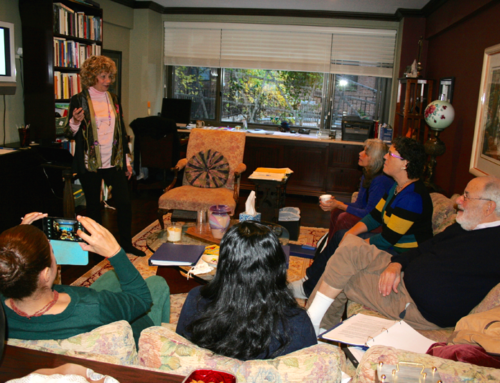The word brainwashed has a negative connotation, conjuring up images of involuntary indoctrination into a mind-set that is robotic and serves a purpose not of our choosing and malignant in some way. I had a colleague years ago whose daughter was mentally “captured” (brainwashed) by a cult. This young woman was treated with great kindness at first which sucked her in, but then she was put to work proselytizing others and collecting money on the streets for the “cause.” And she was prevented from seeing her family. My colleague hired a “deprogrammer” who was able to infiltrate the cult, connect with this young woman and undo the damaging imprint, bringing the daughter to her senses and thereby rescuing her and returning her to her family.
But guess what? We’re all brainwashed in some way. It’s a natural phenomenon, serving to keep families and societies unified, in good ways. This is not looked upon as brainwashing, yet what if we are “indoctrinated,” simply by existing in our early environments, with a belief system that we come to realize runs contrary to our basic nature and how we want to live?
This could be the case if we come to recognize that this benign form of brainwashing is not serving us. For example, you might find yourself with personality traits that make it uncomfortable to be you, like anxiety or depression. These traits may be family coping patterns which are galvanized in us, when we are born into such an environment. By passively “marinating” in this world, these traits “land” in us as if they were genetic. Or, exposure to our role models may have taught us that over-eating or smoking is the way to deal with problems. Perhaps you feel stuck with an inability to modulate your emotions or have other quirks which do not serve you, are not your fault, and make you unhappy to be you.
It is your birthright to decide how you want to live. What if you want to change how you cope? Good news: We can “deprogram”—and then reprogram ourselves.
How? Not easily because of the pull of homeostasis or sameness. But our brains are “plastic” and growth and change are within our power. Neuroplasticity (flexibility of the brain) and neurogenesis (literally the growth of new neural networks which changes the brain as well as the behavior!) are at the forefront of scientific study these days, thanks to brain imaging technology which allows us to see and thereby confirm change in the process.
The steps:
- You need to be aware that there’s something you want to change.
- You need to decide that you want to do the work to make the change happen.
- You need to identify what you don’t want.
- You need to identify what you want to replace the uncomfortable trait with.
- You need to “catch yourself” in the unwanted behavior as a first step to stopping it.
- You need to fake it ‘til you make it with the desired behavior.
Much, much easier said than done. This is merely an outline, meant to inspire hope in possibility. Nothing can change without awareness and motivation. Then, we need two kinds of guidance. We all need objective guidance—teachers, coaches and/or therapists who’ve been there before us. But the place to start is seeking inner guidance, for who better than you knows what’s wrong and what needs to be righted?
Yes, inner guidance alludes to meditation, but I’m not advocating becoming a Tibetan Monk. I mean allowing the mind/body/spirit of you to clear a path that resonates by:
- Recognizing and renouncing negativity
- Focusing on the positive
- Balancing relaxation with work
- Allowing room for mystery
- Practicing focused concentration
- Leaving time for contemplation
- Honoring the power and meaning of the breath as a built-in tranquilizer
- Appreciating Nature in all of its vastness as a companion to the breath as a tranquilizer
Little by little we can let go of patterns we are passively brainwashed into and paradoxically take control of our lives. Since it is difficult to both “be you” and” see you” because we are subjectively involved in our lives, taking this journey is most apt to be accomplished by seeking outside guidance. This is a choice well worth the effort.






